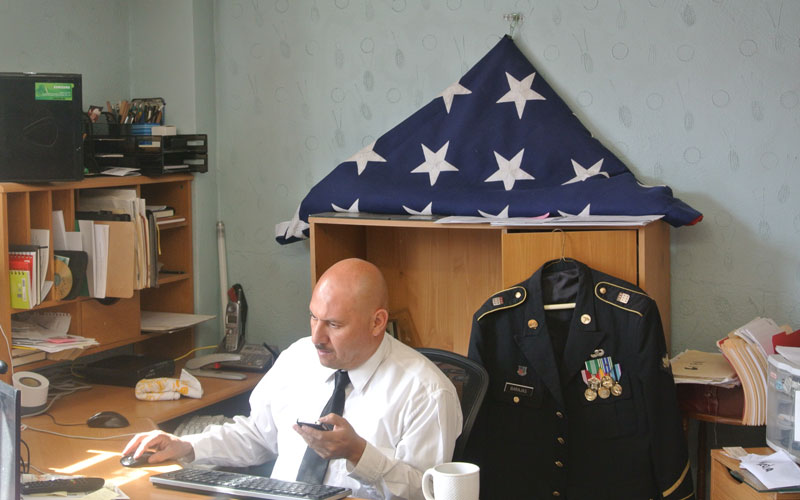
Hector Barajas, a deported veteran, set up the “bunker” in Tijuana to help other deported service members. (Photo by Clara Benitez/Cronkite News)
TIJUANA, MEXICO — Serving in the U.S. military is no guarantee of citizenship. Hector Barajas found out the hard way.
Barajas served in U.S. Army for more than five years. He was deported for life in 2004 after pleading guilty of discharging a firearm from a vehicle.
“You lived your life in the U.S., and now you’re thrown into a country you really don’t know,” Barajas said.
Veterans who get in trouble with the law can face consequences, but those who are not also citizens are deported.
Since 2001, nearly 110,000 members of the military have become citizens, but the process is not automatic.
“A few of them tell me they thought they were citizens as soon as they joined the military,” said Margaret Stock, an immigration attorney who handles veterans’ cases.
“My recruiter told me I am a citizen,” Barajas said. “You believe everything Uncle Sam told you.”
After Barajas was deported, he met other veterans who were also stuck in Mexico. He now runs a veteran support house in Tijuana called the “bunker,” which provides food, temporary shelter and support.
The bunker has helped many, including Jesús Antonio Juarez Castillo, who was deported in 2003.
“It’s kind of like a family that I didn’t have before,” Juarez Castillo said. “We are close, all of us. We stay together and we get to help each other. It’s a blessing for us.”
Many of the veterans who have stayed in the shelter signed their names on the wall along with “thank you” notes for Barajas.
Barajas also helps veterans who have been deported to other countries.
“We also got a guy from India currently connected with the ACLU,” Barajas said. “There is another guy in Ecuador.”
Stock said the Department of Homeland Security has started a program called “basic training naturalization” to ensure members of the military become citizens.
“If people naturalize at the end of basic training, they won’t be deported later on, because they will be U.S. citizens,” said Stock.
The only way a deported veteran can go back to the United States now is after death to be buried.
“The only way I am going home is in a bag, in a coffin,” Barajas said. “I think if we are going to be allowed to return as American veterans, we should be allowed to live with our American families for the rest of our lives.”